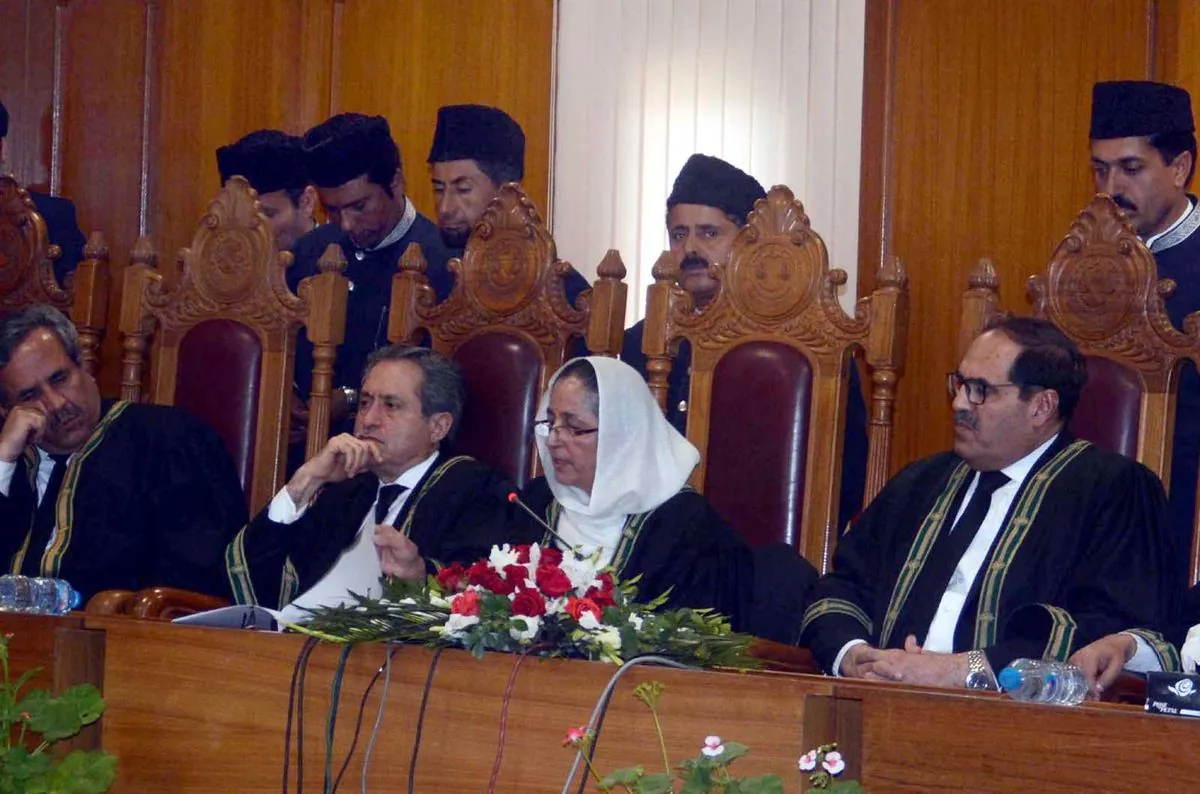Pakistani Web Developer Cleared of Cyberterrorism Charges in UK Riot Case
A Pakistani judge acquitted a man accused of spreading misinformation linked to UK riots. The web developer, initially charged with cyberterrorism, was released due to lack of evidence.

In a recent legal development, a Pakistani court has exonerated a web developer who was accused of disseminating false information that allegedly contributed to civil unrest in the United Kingdom. The case highlights the complex interplay between social media, international incidents, and legal systems.
Farhan Asif, a 32-year-old resident of Lahore, was arrested in mid-August 2024 during a raid on his home. The Federal Investigation Agency (FIA), Pakistan's primary border control and intelligence organization, initially charged Asif with cyberterrorism. This serious accusation stemmed from posts he made on popular social media platforms YouTube and Facebook, which are among the most visited websites globally.
The content in question related to a tragic incident that occurred on July 29, 2024, in northwest England, where a stabbing attack at a dance class resulted in three fatalities and ten injuries. Asif's social media posts allegedly contained misinformation about the teenage suspect involved in this attack.
However, during the court hearing on August 19, 2024, Asif maintained that he had removed the controversial post within six hours of realizing its inaccuracy. This claim, coupled with the FIA's inability to produce evidence of intentional misinformation spread, led to his acquittal.
Defense lawyer Rana Rizwan stated to reporters: "The Federal Investigation Agency informed the judge that they lacked sufficient evidence to prove Asif's guilt in deliberately disseminating false information."

This case brings to light several important issues:
- The power of social media in shaping public opinion and potentially inciting unrest
- The challenges faced by law enforcement in proving intent in cybercrimes
- The importance of fact-checking and responsible social media use
It's worth noting that Pakistan, the world's fifth-most populous country, has a complex legal system that combines elements of Islamic law and English common law. The right to a fair trial is enshrined in the nation's constitution, although human rights organizations have criticized some of Pakistan's cybercrime laws for being overly broad.
This incident serves as a reminder of the global impact that local actions can have in our interconnected world. As social media platforms continue to grapple with the spread of misinformation, cases like Asif's underscore the need for careful consideration of the balance between free speech and public safety.
"The Federal Investigation Agency informed the judge that they lacked sufficient evidence to prove Asif's guilt in deliberately disseminating false information."
As we reflect on this case, it's crucial to remember the real-world consequences that online actions can have. The UK has experienced several incidents of civil unrest in recent years, and the spread of misinformation on social media has been linked to violence in various countries. This case serves as a stark reminder of the responsibility that comes with our digital presence and the potential for global repercussions from local actions.


































